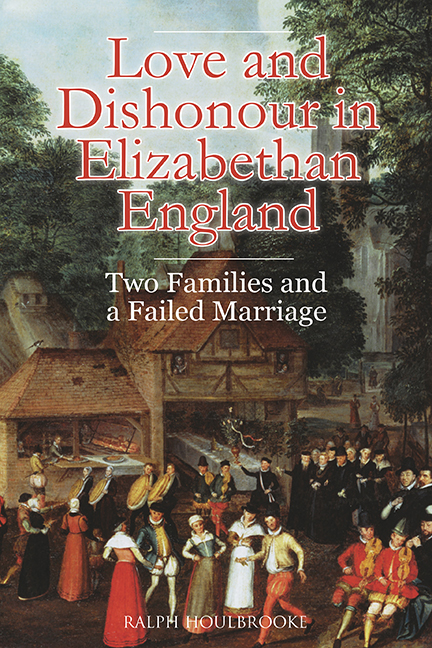Book contents
- Frontmatter
- Dedication
- Contents
- List of Illustrations
- Preface and Acknowledgements
- Notes on the Spelling of Names, Dates, and Currency
- List of Abbreviations
- map
- Miscellaneous Frontmatter
- Introduction
- Part I Two Families
- Part II An Unfortunate Marriage
- 4 A Clandestine Marriage
- 5 The End of the Marriage
- 6 Two Cases in the Court of Requests
- Part III Afterwards
- Bibliography
- Index
6 - Two Cases in the Court of Requests
from Part II - An Unfortunate Marriage
Published online by Cambridge University Press: 13 July 2019
- Frontmatter
- Dedication
- Contents
- List of Illustrations
- Preface and Acknowledgements
- Notes on the Spelling of Names, Dates, and Currency
- List of Abbreviations
- map
- Miscellaneous Frontmatter
- Introduction
- Part I Two Families
- Part II An Unfortunate Marriage
- 4 A Clandestine Marriage
- 5 The End of the Marriage
- 6 Two Cases in the Court of Requests
- Part III Afterwards
- Bibliography
- Index
Summary
Henry Jerningham and Elizabeth Forth v. Robert Forth
Elizabeth Forth responded to the news of Charles Forth's flight from England by starting proceedings in the Court of Requests at Westminster. The roots of this court lay in the medieval practice of appointing members of the king's Council to deal with poor petition¬ers’ requests for justice. Its earliest surviving records date from Henry VII's reign. Henry's immediate predecessor Richard III had appointed a clerk concerned with requests and supplications. In 1538–9, Requests became an independent court, separate from the newly established Privy Council, with two judges called masters of requests. In response to the rapid growth in the court's business, Queen Elizabeth added in 1562 two ‘masters extraordinary’ to assist the existing masters. The masters included both civil and common lawyers. The participation of a common lawyer ensured that the court could deal with matters of property in accordance with common law rules. The court's settled home from early in Henry VIII's reign was the Lesser or White Hall in the palace of Westminster. This large chamber lay south of the Great Hall, just past St Stephen's chapel, which was occupied by the Commons when parliaments were in session.
Requests was a court of equity, intended to provide justice for those unable to sue elsewhere. Poverty was the basic criterion of eligibility for suitors’ access. The court's chief responsibility was to hear ‘poor men's causes’. Orders appointed for the operation of the court in 1543 stipulated that all landed gentlemen and other men with movable prop¬erty who brought complaints to the king or his Council were to be ‘remytted to the common lawe, and in default of remedie there, to the Kinges high Court of Chauncerie’. Only the king's household servants ‘attendant upon his person’ were exempted from this rule.
The common law prohibited litigation between spouses. Requests, albeit reluctantly, entertained some suits of this sort. Professor Tim Stretton's exhaustive search for litigation between marriage partners in the records of the court ‘unearthed just thirty-three cases (fought by thirty-one couples) in the years from 1542 to 1642’. They formed a tiny proportion of the business of a court that heard hundreds of cases each year.
- Type
- Chapter
- Information
- Love and Dishonour in Elizabethan EnglandTwo Families and a Failed Marriage, pp. 171 - 202Publisher: Boydell & BrewerPrint publication year: 2018

